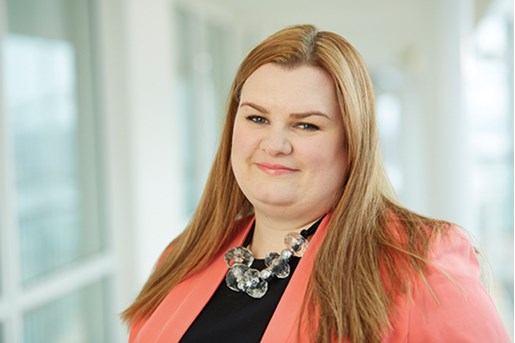WELCOME TO OUR MONTHLY HEALTHCARE UPDATE WITH ALL THE LATEST DEVELOPMENTS YOU NEED TO KNOW ABOUT
Highlights this month include: the UK Covid-19 Inquiry has opened its second investigation; the Government is suing a company contracted to make kits to detect Covid-19; the Department of Health has announced that 50 new surgical hubs will open to reduce Covid-19 backlogs; how healthcare organisations' are coping with cyber-attacks; and the UK's private healthcare boom.
- UK GOVERNMENT UNVEILS ENERGY BILL RELIEF SCHEME
The UK Business Secretary Jacob Rees-Mogg announced more details on how the Energy Bill Relief Scheme (known as EBRS) will work. With limited exceptions, it will reduce energy bills for businesses, charities and public sector organisations for 6 months, from 1 October 2022 to 31 March 2023. It applies to everyone on a non-domestic contract, regardless of size. There will be a 'maximum discount' applicable for default or variable tariff contracts. This is because if energy prices rise to very high levels, the Government will have to pay a higher amount in the difference between wholesale prices and the government supported price. The maximum discount will be confirmed on 30 September but is likely to be around £405/MWh for electricity and £115/MWh for gas, subject to wholesale market developments. What this means for any business with a contract where the unit price varies each month is that the government cannot guarantee they can hold the unit price down at the government-supported price if wholesale prices go up too much. So businesses would have to pay the excess once the maximum discount has been applied. The EBRS will be reviewed after three months to inform decisions on future support after March 2023. The level of support for each organisation will vary depending on type and date of contract. The difference between expected wholesale prices and the government-supported price could equate to a 20% discount.
See also, the Addleshaw Goddard insight on this development.- COVID-19 INQUIRY OPENS SECOND INVESTIGATION INTO GOVERNMENT DECISION-MAKING
The UK Covid-19 Inquiry has opened its second investigation, which will examine political and administrative decision-making of the UK and devolved governments. There will be particular focus on early 2020. The investigation will examine decisions taken by the Prime Minister and the Cabinet, as advised by the Civil Service, senior political, scientific and medical advisers. The Inquiry will hold preliminary hearings from late autumn. The application process to become a Core Participant will close on 23 September. Core Participants can access evidence relevant to this investigation, make opening and closing statements at Inquiry hearings and suggest lines of questioning to Inquiry Counsel.
- UK GOVERNMENT SUES COVID-19 TEST DESIGNER FOR £135M
The UK Government is suing Primer Design Ltd for £135 million. Primer was contracted by the Government to make kits to detect Covid-19, which the Government now claims did not work appropriately. The government maintains that the deal required the PCR tests to provide 100% overall sensitivity, but the company's tests cleared only approximately 80%. Primer's tests were suitable only for nasopharyngeal specimens rather than oropharyngeal, which was contrary to what was agreed, the government said. The kits also sometimes provided false negative results when used with specimens taken from the back of the throat. Primer has denied any wrongdoing and has hit back with a counterclaim, arguing that the government owes them £81.5 million in outstanding payments.
- OVER 50 NEW SURGICAL HUBS SET TO OPEN TO HELP BUST COVID BACKLOGS
The Department of Health and Social Care has announced that over 50 new surgical hubs will open across the country to help reduce the COVID-19 backlogs and offer patients quicker access to procedures. These hubs will provide approximately 100 more operating theatres and 1000 more beds. This is backed by £1.5 billion in government funding. The focus will mainly be on providing high volume low complexity surgery, as previously recommended by the Royal College of Surgeons of England, with particular emphasis on ophthalmology, general surgery, trauma and orthopaedics, gynaecology, ear nose and throat, and urology. The hope is that this will improve quality and efficiency, with patients having shorter waits for surgery and be less likely to need additional treatment after surgery.
- DIGITALISING CANCER PATHWAYS
People across the UK will benefit from faster, more personalised healthcare, following a digital revolution to make the health system fit for the 21st century. The pandemic has driven this digitalisation across healthcare, including cancer care. While there has been concern expressed from some patients about the lack of personal consultations, especially in cancer diagnostics, there is now an expectation from that there will be a digital healthcare solution to streamline the patient journey. The UK has some ground to make up in order to be able to deliver their plan to increase the number of patients diagnosed with early-stage cancer (Stages 1 & 2) from 50% to 75% by 2028. This has been exacerbated by the delays to diagnosis and treatment that resulted from the pandemic. NHS cancer waiting time targets were already failing the pandemic, sod one of the recommendations in the cross party Cancer Summit Report published in 2021 was to digitalise cancer services where suitable.
- NHS ROLLS OUT NEW ELECTRIC VEHICLES
New NHS electric vehicles are hitting the road this summer, as part of a strategy to help the NHS cut its carbon footprint. Eight ambulance trusts are trialling 21 zero-emission vehicles, with six of the new green vehicles dedicated to mental health response. They are designed to cut emergency response times and help reduce demand on traditional double-crewed ambulances. The vehicles are part of a £2.1 million investment, as the NHS becomes the first health service in the world to commit to reaching net zero by 2040. The new dedicated mental health response vehicles differ in design from traditional ambulances. They still carry the equipment that enables them to respond to the most serious life-threatening emergencies, however, they have fewer fluorescent markings and a much less clinical interior to help put patients at ease. Other vehicles in the new fleet include those equipped to attend less severe emergencies and those designed to transfer seriously ill patients to and from high dependency units.
- EVOLVING RANSOMWARE THREATS ON HEALTHCARE
In order for healthcare organisations' to have the capacity to deal with issues like staffing shortfalls, digital transformation is critical. That dependence on technology however makes healthcare organisations a prime target for cyberattacks. From 2020 to 2021, ransomware attacks on healthcare providers nearly doubled. Two-thirds of healthcare organisations were hit by ransomware attacks last year, up from 34% in 2020, according to a new report from cybersecurity firm Sophos. While healthcare as an industry is being heavily targeted by ransomware, health or medical clinics are by far the hardest hit. These organisations are the least likely to have made a significant investment in their security posture. In 2022, threat actors evolved the tactics and techniques used in their healthcare ransomware attacks. One healthcare financial services company breach associated with Quantum Locker Ransomware affected 657 providers and compromised more than 1.9 million patient records. Organisations will need to act fast and rely on a combination of automated defences, AI, and human defenders.
- THE FUTURE OF PHARMACY IN ENGLAND
The Royal Pharmaceutical Society is inviting views on the future of pharmacy in England over the next decade. The RPS project with The King's Fund, transforming pharmacy practice, is developing a vision for the role of pharmacists and pharmacy teams working across systems providing patient care and NHS services. It is due to be published at the end of this year. They are asking people to respond to the consultation by 30 September. The King's Fund have completed a literature review, which has helped inform the initial six themes, which are the focus of the consultation. The six themes are:
- supporting people and communities to live well for longer;
- enabling people to live well with the medicines they choose to take;
- enhancing patient experience and access;
- our pharmacy people;
- data, innovation and research; and
- collaboration and leadership.
- BRITAIN’S PRIVATE HEALTHCARE BOOM
69,000 Brits chose to self-fund their treatment in the final three months of 2021. This is a 39 per cent rise on the same period pre-pandemic. The numbers paying for such treatments topped 250,000 last year. These are the people paying the full cost of treatment themselves; it does not include those who have private insurance. People are also increasingly turning to private GPs, diagnostics and consultants to speed up their treatment. One of the UK's leading private healthcare providers Spire says it is currently experiencing record demand from self-funding patients. This correlates with the record 5.6 million people who were waiting to start hospital treatment at the end of July. A report commissioned by the British Medical Journal reported that of 3466 UK adults surveyed, almost a third struggled to access the care they needed during the pandemic.
- CVS ACQUIRES SIGNIFY IN LATEST HEALTHCARE TECH DEAL
CVS Health agreed to acquire Signify Health in a multi-billion-dollar transaction. The move is part of CVS's strategy to become more ingrained in the healthcare market. This transaction may seem peculiar since CVS is often portrayed as just a drugstore chain, while Signify focuses more on value-based payment programs associated with the healthcare space. CVS however continues to push itself to transform into an integrated, diverse healthcare enterprise. Amazon, who recently bought One Medical for £3.3bn, had also launched a bid, along with UnitedHealth Group and Option Care Health. CVS will acquire Signify for $30.50 per share in cash, representing a total transaction value of approximately $8 billion. Signify Health is a leader in Health Risk Assessments, value-based care and provider enablement. As part of CVS Health, Signify Health will continue to advance its extensive primary care enablement capabilities, including turnkey analytics, network, and practice improvement solutions, to help providers transition to value-based reimbursement and improve quality of care. CVS was advised on legal matters by Fried, Frank, Harris, Shriver & Jacobson LLP, Dechert LLP, and McDermott Will & Emery LLP. Ropes & Gray LLP acted as Signify Health's legal advisor.

Louise Dobson
Global Co-Head of Health and Life Sciences and also Partner - Commercial Disputes
United Kingdom



